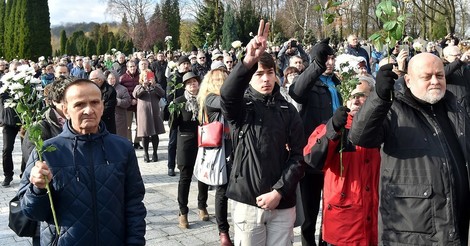Your podcast discovery platform
Curious minds select the most fascinating podcasts from around the world. Discover hand-piqd audio recommendations on your favorite topics.

piqer for: Globalization and politics Global finds
Sezin Öney, originally from Turkey, is based in Budapest and Istanbul. She her journalism career as a foreign news reporter in 1999 and she turned into political analysis as a columnist since 2007. Her interest in her main academic subject area of populism was sparked almost decade ago; and now she focuses specifically on populist leadership, and populism in Turkey and Hungary. She studied international relations, nationalism, international law, Jewish history, comparative politics and discourse analysis across Europe.
What’s A Bigger Threat: ‘Normalization’ Or Alarmism?
"Where do you draw the line between living in a democracy in which the party you despise has won free elections and living in a dictatorship where the opposition may never be allowed to win again? Is “normalization” of populists the biggest threat facing Europe, or should we also fear the hysteria of populists’ opponents? And can the forms of resistance that worked against Communist and fascist dictatorships work against the democratically elected illiberal governments of today?"
These are the questions that Ivan Krastev, one of Europe's foremost thinkers, elaborates on. And these are actually the very questions we face as our contemporary political reality across the world. The degrees of urgency or the degree of troubles one might get into by posing these questions may differ, but the questions themselves are valid far beyond Europe. We are living the "populist epoch". But is this era actually comparable to totalitarian regimes' times that the world witnessed in the 20th century? Krastev cautions against drawing parallels between the past and today:
Drawing the line between democracy and dictatorship requires passion and a readiness to defend one’s values. It also requires a sense of proportion.
A sense of proportion requires threading on a thin line: refraining from "normalizing" maladies of populism, but also abstaining from extreme "alarmism" that might yield only to deepen social and political polarization. At the end of the day, contemporary populism thrives on polarization and the paralysis of politics when facing populism. ,
Krastev's article is worth reading and thinking deep into the queries it poses. He does not provide answers to the questions he is throwing on the table. But questions, when formulated in the right way, open up the way to new thoughts, new modes of thinking. And this is precisely what the global politics needs: to think differently as populism seeks to "freeze the societal status quo".
